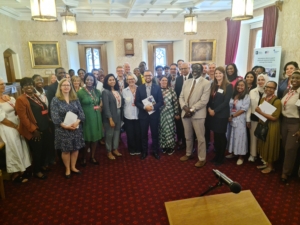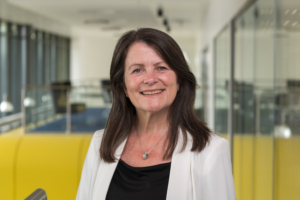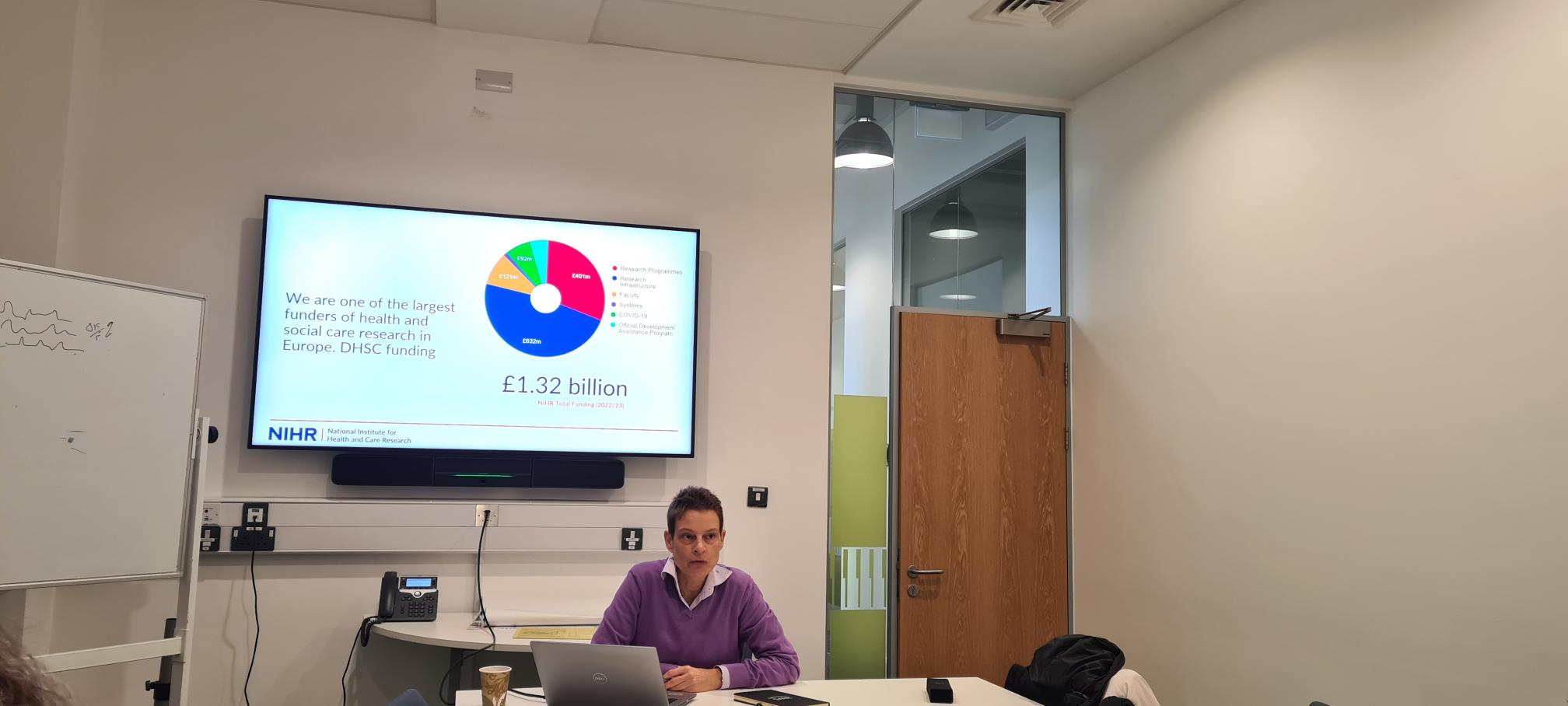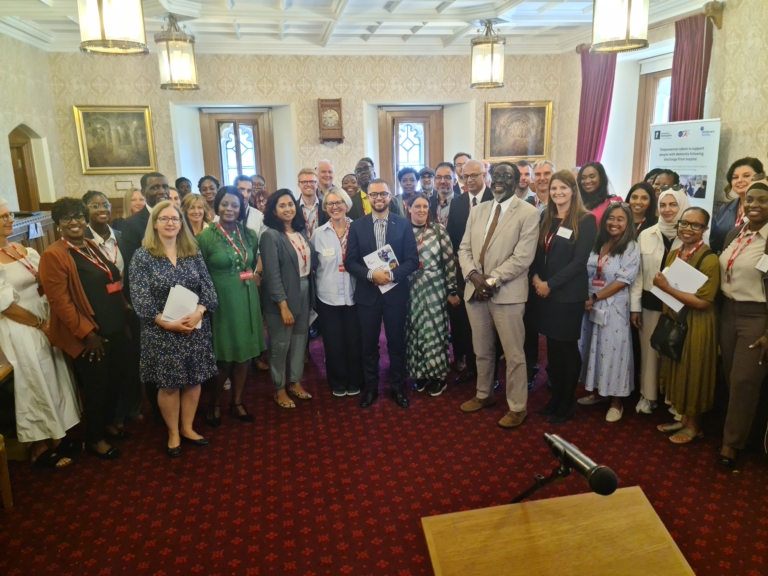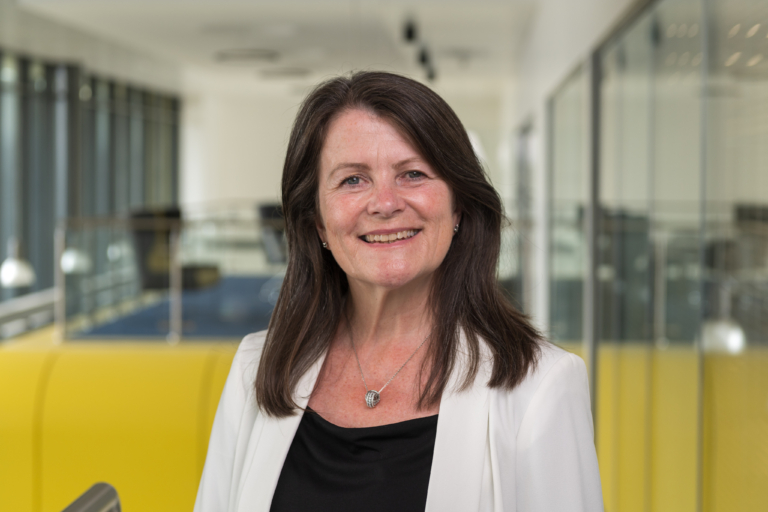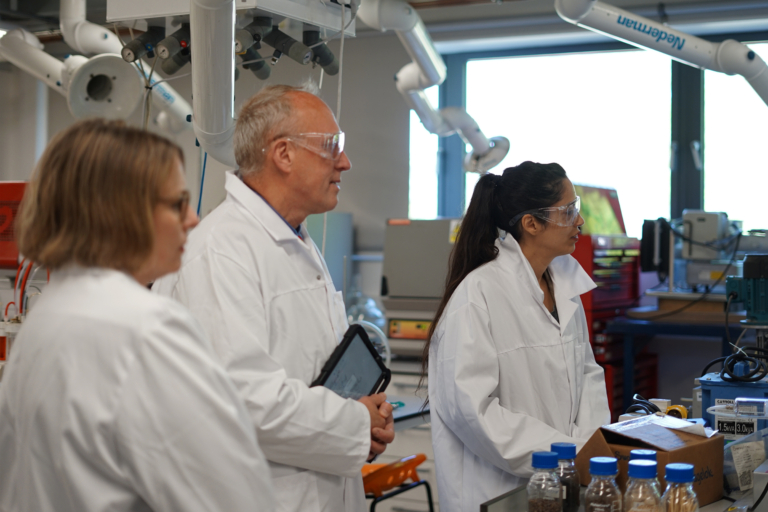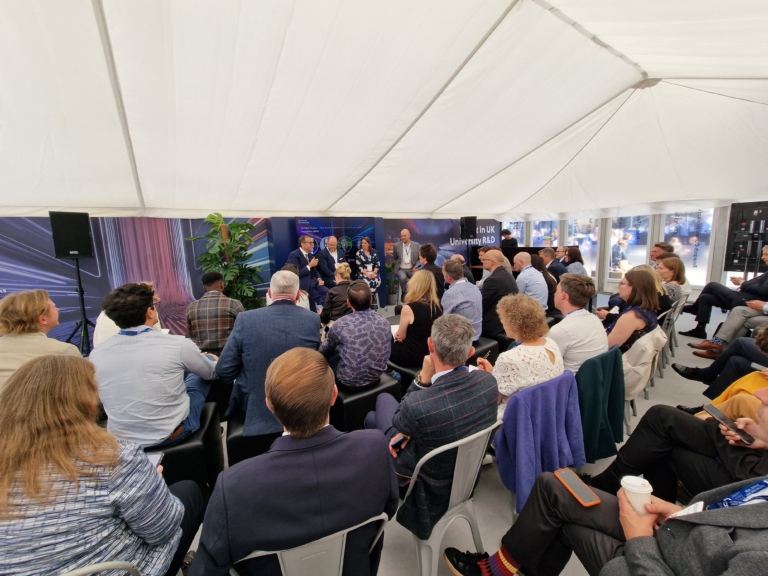Midlands Innovation Health (MI Health) partners in the West Midlands welcomed the National Institute for Health and Care Research (NIHR) to the region, and shone a spotlight on their health research excellence which is making a difference to local industry and communities.
Coordinated by MI Health, the universities of Keele, Aston, Birmingham and Warwick hosted Dr Helen Compton, Stakeholder Engagement Manager, Innovation Programmes NIHRCC, to provide an update on their innovative translational research, while hearing more about the latest NIHR opportunities.
As part of NIHR’s health and wealth agenda, the i4i research programme supports research for Medical Technology (MedTech) product development, clinical evaluation and implementation research necessary to compile a high-quality technical dossier for submission to regulatory authorities.
Keele University
The regional visit started with Professor Krysia Dziedzic, Associate Pro Vice-Chancellor: Research and Impact and NIHR Senior Investigator in Primary Care. She introduced the University’s strengths, highlighting the multidisciplinary Institutes of Digital Society, Sustainable Futures, Social Inclusion, and Global Health and Wellbeing. Professor Jonathan Hill, Professor of Physiotherapy, Centre for Musculoskeletal Health Research, highlighted examples of digital health innovation (notably in the study of musculoskeletal pathways). Ann Pittard, Director of Engagement and Partnerships, also showcased Keele University Science and Innovation Park.
Dr Compton joined a workshop within a Research Development Day on Research Impact, where key impact case studies were presented and discussed with an audience of academic, clinical and public representatives. Inclusion was a strong theme, building on the work of the Keele Impact Accelerator Unit. Presentations included Professor Gwenllian Wynne-Jones on health and work; Dr Tom Kingstone on mental health and well-being; and Professor Jonathon Shears and Dr James Peacock on using the creative arts to draw communities into research and build trust. Midlands Innovation’s Director, Dr Helen Turner, spoke about the opportunities available across the partnership.
Finally, Professor Dziedzic hosted a discussion between Dr Compton, Professor Mark Ormerod OBE, Deputy Vice-Chancellor and Provost, and Professor David Amigoni, Pro Vice-Chancellor Research and Innovation, and Alex Archibald, Midlands Innovation Health, to discuss strategic opportunities, most notably in the sustainability sector.
Aston University
Dr Compton met Dr Antonio Fratini, Head of Biomedical Engineering, and Karl Emms, Lead Nurse for Patient Safety at Birmingham Women’s and Children’s NHS Foundation Trust, to discuss medical devices and diagnostics. This was followed by Professor Adrian Gardner, the first professor of clinical practice in orthopaedics at the University, showcasing his work in orthopaedics, 3D modelling and surgical assessment.
Dr Compton presented the NIHR funding landscape to senior researchers, including Dr Ghaniah Hassan-Smith, Lead for Medical Simulation and Practical Procedures. This was followed by a series of innovation translation meetings. Dr Jan Novak, Lecturer in Psychology, highlighted the University’s work in paediatric neuroscience, imaging, and AI, and queried potential funding routes for the decision support system. Professor Jacqueline Blissett, Co-Director of the Aston Institute of Health and Neurodevelopment (IHN), spoke of opportunities to support research taking place across the Institute, including work into childhood eating behaviour. Finally, the Director of Applied Health Research Group, Professor Rachel Shaw, and Dr Karen Crowdy, Director of Research Strategy and Operations at the IHN, highlighted work on in-situ NHS interventions.
University of Birmingham
Dr Compton met Professor Gino Martini, CEO of the Precision Health Technology Accelerator. He discussed the world-leading life sciences space that will be unveiled at the Birmingham Health Innovation Campus later this year. PHTA, which will be located at BHIC, is a business innovation facility that brings entrepreneurs, start-ups and scale-ups together with the next generation of academic and clinical leaders to commercialise ideas and accelerate the rapid development of cutting-edge therapies and technologies.
Following this, Professor Anthony Metcalfe and Derek Sear, gave an overview of the West Midlands Health Technology Innovation Accelerator (WMHTIA), one of five projects focused on HealthTech, MedTech, and CleanTech in the West Midlands Innovation Accelerator. While Kate Jermy spoke of the university’s work in Knowledge Transfer Partnerships, which encourage companies to tap into the full suite of expertise that the university can offer.
University of Warwick
On the last day of the visit, Dr Compton heard from Charlotte Kershaw, ITM Project Manager, on the exciting research and innovation pathways being established by the Institute of Translational Medicine. Julia Dawson and Alex Lomas, both Innovation Managers at the Warwick Innovation District, outlined the success of the West Midlands Health and Wellbeing Innovation Network (part of WMHTIA) in scoping, scouting and demonstrating business-led solutions for healthcare needs. Professor Chris Warhurst, Director of the Warwick Institute for Employment Research, highlighted how their policy change work has become more heavily focused on the health sector, with examples being health in the workplace.
Professor Simon Brake, Chief Engagement and Innovation Officer for Warwick Medical School, and Elizabeth Cromwell, Associate Head of Strategic Projects at Warwick Manufacturing Group (WMG), discussed the close working relationship with Coventry and Warwickshire Partnership NHS Trust and Arden Cross. While Scott Crowther, Innovation Manager, SME projects at WMG, highlighted how the academic ecosystem can support businesses and the innovation landscape.
Researchers at WMG showcased their upcoming technologies and interventions: Professor Alan Chalmers presented his innovative Alzheimer’s screening solution using flavour responses; Professor Siddartha Khastgir proposed the use of whole system working and how it can be used to solve problems in a healthcare setting; Dr Greg Epiphaniou showed a variety of opportunities for improving cyber security within medical devices; and Dr Michael Auinger considered ways physics, engineering and materials modelling can be applied to healthcare.
Dr Compton also met Professor Gavin Perkins, Dean of Medicine at the University to discuss with how charities can be involved in the research landscape.
Professor Perkins, who represents the University of Warwick on the MI Health Board, said: “MI Health plays a pivotal role in representing the region’s top health and medical schools, I am delighted that as a partnership we arranged a tour which highlights the depth and breadth of health research taking place in the Midlands, and giving partners an opportunity to hear more about the latest NIHR opportunities.”
Reflecting on her visit, Dr Helen Compton said: “The Midlands has a strong MedTech focus and, since being at NIHR, I have engaged widely across the Midlands research ecosystem talking to innovators and ecosystem players to understand regional research capabilities and strengths, and connecting people to the NIHR i4i programme, the wider NIHR ecosystem offer, or to other aspects of the research ecosystem. This activity is an example of this.
“I am grateful to Midlands Innovation Health, Alex Archibald and colleagues at each of the universities for organising this trip. As a representative from a national funder, I could not have done this so easily and I am grateful for everyone who gave up their time to talk to me. I had a very packed three days and great discussions at different levels across a wide range of areas and interests. It is fair to say that a variety of different support investments, capabilities, collaborations and longer-term planning has resulted in a more cohesive MedTech development and support offer for innovators whether they come from an academic base or outside of it. It was also apparent that identifying opportunities to cross over technologies from one sector to another is thriving. Thank you for your hospitality.”
